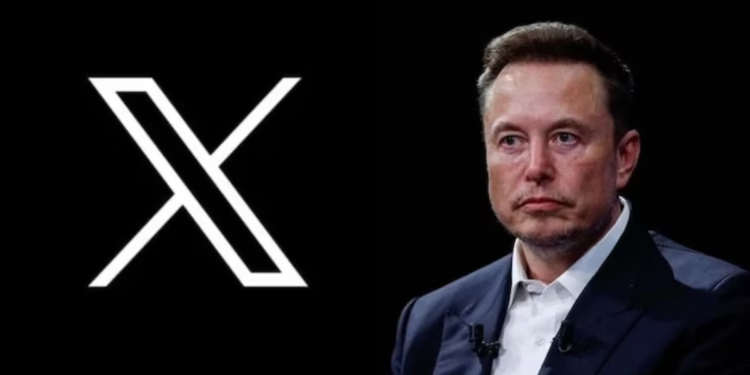Elon Musk’s social media platform, X (formerly Twitter), has filed a legal challenge against the Indian government over its new online content regulation mechanism. The lawsuit, filed in the Karnataka High Court, argues that the government’s evolving censorship rules undermine judicial oversight, potentially affecting free speech. This legal action comes as Musk is simultaneously working to expand his business ventures in India, including Starlink and Tesla, raising questions about the broader implications for the digital and economic landscape.
X’s Lawsuit Against the Indian Government
X has challenged India’s content removal policies, specifically targeting the government’s use of Section 79(3)(b) of the Information Technology (IT) Act, which allows officials to issue takedown requests through a newly introduced “Sahyog” portal. Unlike Section 69A, which requires a formal legal process and judicial review, the new system grants direct authority to government departments to demand content removals.
Key Concerns Raised by X:
- There is a lack of judicial oversight in the new mechanism.
- The potential for arbitrary censorship without due process.
- The absence of clear guidelines on what constitutes objectionable content under the new system.
- Reports of government officials from non-law enforcement departments, such as the railway ministry, issuing takedown notices.
- The risk that this process bypasses constitutional safeguards meant to protect digital expression.
X’s legal filing argues that this approach could lead to increased online censorship and restrict open discourse, impacting not only media organisations and activists but also ordinary users engaging in public conversations.
India’s Digital Regulations and Their Implications
India has one of the largest social media user bases in the world, with X hosting millions of active users in the country. The government’s increasing regulatory oversight has sparked concerns about the balance between content moderation and freedom of speech.
The Information Technology (Intermediary Guidelines and Digital Media Ethics Code) Rules, 2021 already require social media platforms to remove flagged content within 36 hours and appoint grievance officers to respond to user complaints. However, the new Sahyog system, which X is challenging, introduces an additional layer of executive control over content moderation.
The Broader Regulatory Landscape:
- 2021 IT Rules: Require platforms to remove content flagged by the government and provide compliance reports.
- 2022 Amendments: Expanded government authority over fact-checking and “fake news” detection.
- 2023 Digital India Act Proposal: Introduced harsher penalties for non-compliance and more oversight on digital platforms.
The Karnataka High Court’s ruling on X’s petition could set a precedent for how international tech companies operate under India’s regulatory framework.
Elon Musk’s Expanding Business Interests in India
While X is contesting the Indian government’s censorship policies, Elon Musk is simultaneously pushing forward with business expansion plans in the country. His interest in India spans multiple industries, including electric vehicles (EVs), satellite internet, and renewable energy.
Musk’s Key Business Initiatives in India:
- Tesla’s Entry into the Indian Market:
- Plans to set up a manufacturing facility in India.
- Possible partnerships with local suppliers to expand Tesla’s footprint.
- Engagement with Indian authorities on import duty relaxations.
- Starlink’s Satellite Internet Expansion:
- Initial discussions with India’s telecom regulators for service approvals.
- Targeting rural connectivity and bridging the digital divide.
- Renewable Energy Investments:
- Potential collaboration with Indian firms in the solar energy sector.
- Exploring battery storage solutions for sustainable energy.
These ventures align with India’s economic priorities, including Make in India, Digital India, and the transition to green energy. However, Musk’s legal challenge against the Indian government’s digital policies could complicate his broader business relationships.

Legal and Industry Reactions
X’s lawsuit has ignited discussions among legal experts, digital rights activists, and government officials.
Reactions from Various Stakeholders:
- Legal Experts: Many argue that government control over online content must adhere to constitutional safeguards to prevent misuse.
- Industry Leaders: Some tech executives believe that increased regulation could create operational challenges for international companies in India.
- Government Officials: Authorities maintain that the new policies are necessary to prevent misinformation, maintain public order, and ensure national security.
- Digital Rights Groups: Organisations advocating for online freedom warn that unchecked censorship could lead to the erosion of digital democracy.
The outcome of this legal battle will influence not only X’s operations in India but also how global tech companies navigate regulatory frameworks in emerging markets.
What This Means for Users and Businesses in India
The ongoing dispute highlights critical concerns for social media users, businesses, and investors in India.
- For Users: Increased regulation could mean stricter content moderation, potentially affecting digital discourse and free expression.
- For Businesses: Companies relying on social media for communication and marketing might face uncertainty over content removals.
- For Investors: The legal environment for international tech firms in India remains complex and evolving, requiring careful navigation of regulatory challenges.
Looking Ahead
The Karnataka High Court’s decision on X’s lawsuit will have far-reaching consequences for digital governance in India. As Musk continues his business engagements, this legal battle will test the balance between regulatory compliance and corporate autonomy. Whether X’s challenge leads to policy changes or strengthens government control, the case will shape the future of online expression and digital business operations in India.
For more updates on digital policies affecting the Indian diaspora and global tech giants, stay tuned to NRIAffairs.com.










